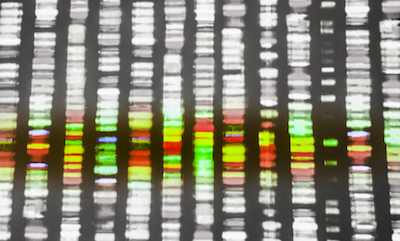Researchers Awarded $10.8 Million to Study Genetics of Alzheimer’s.
 A team led by Anita DeStefano, professor of biostatistics, has been awarded a five-year, $10,857,059 grant from the National Institutes of Aging to search for genes related to Alzheimer’s disease.
A team led by Anita DeStefano, professor of biostatistics, has been awarded a five-year, $10,857,059 grant from the National Institutes of Aging to search for genes related to Alzheimer’s disease.
The research will analyze over 20,000 whole genomes being sequenced as part of the Alzheimer’s Disease Sequencing Project (ADSP) Follow-Up Study. Previous ADSP research by DeStefano and colleagues identified three new genes not previously linked to Alzheimer’s, as well as several new variants in genes that had been associated with the disease.
“Clinical trials focused on treatments for Alzheimer’s disease have not been successful,” says DeStefano, who is also professor of neurology at the School of Medicine. “By identifying genes and the specific variants in these genes that are influencing risk for Alzheimer’s disease, we can identify new biological pathways to target, and potentially identify subgroups of Alzheimer’s patients that may respond to a particular treatment.”
Genetic Alzheimer’s research has largely focused on populations of European ancestry. The ADSP Follow Up Study includes notably diverse ethnic populations, DeStefano says, noting that African Americans have been particularly underrepresented in genetic studies of Alzheimer’s despite having a higher prevalence of the disease than their white counterparts. “Including data from African Americans and carefully modeling the complexity of the data are important in order to learn what may be driving the difference in prevalence.”
As Boston University invests in data science, including recently breaking ground for a state-of-the-art Center for Computing & Data Sciences, DeStefano says that this major grant is a sign of recognition that School of Public Health investigators are experts and leaders in applying data science to human health. “Large-scale data with this level of complexity—driven by biology, disease processes, combining data across different study designs and data generated in different centers with changing technology, and population structure—require expertise in statistical modeling, machine learning approaches, efficient programming, and high-performance computing resources,” she says.
The research team at the School of Public Health includes Josée Dupuis, professor and chair of biostatistics; Gina Peloso, assistant professor of biostatistics; Chloe Sarnowski, postdoctoral associate in biostatistics; Achilleas Pitsillides, research fellow in biostatistics; and doctoral students Elise Lim and Yanbing Wang. The School of Medicine collaborators are Honghuang Lin, associate professor of computational biomedicine; Nancy Heard-Costa, assistant professor of neurology; and Sudha Seshadri, adjunct professor of neurology.
The researchers will collaborate with investigators at Baylor College of Medicine, the University of Texas Health Science Centers at Houston and San Antonio, Columbia University, the University of Washington, and the University of Pennsylvania.